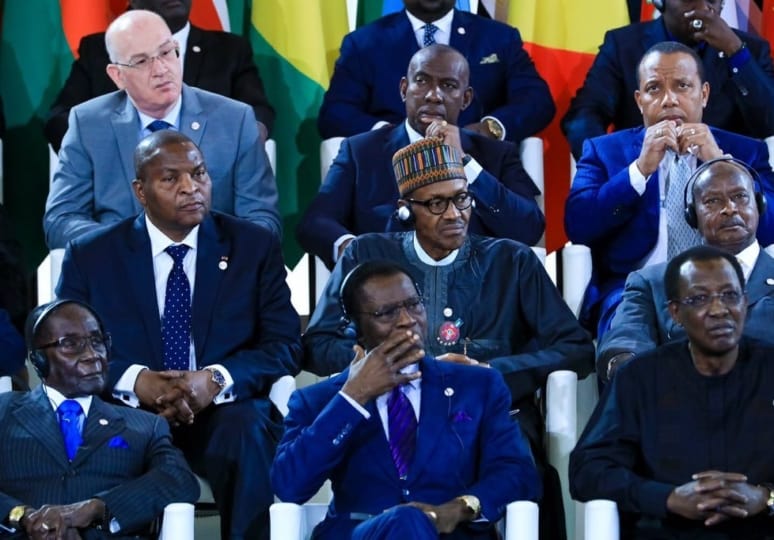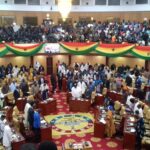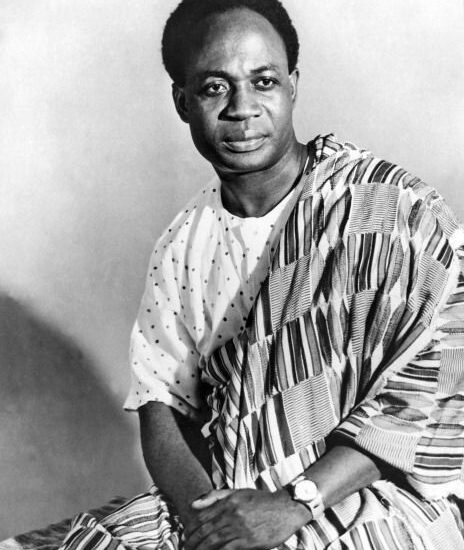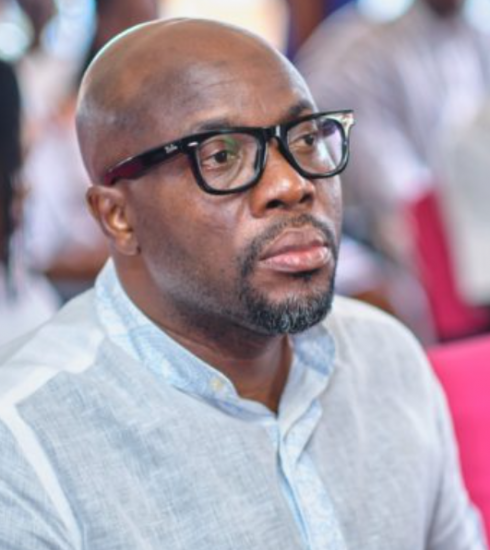African presidents: an issue of gerontocracy, a concern or coincidence
Gerontocracy: In simple terms, it means a system of rule by old people. That sounds like some good logic, they for example can bring their experience and know-how to the table. But some people have risen against this “good logic” that a system, society or a people ruled by old people is dangerous, undemocratic and frankly an unwise decision. A lot of writers have recently espoused that Africa has descended into gerontocracy and that, that could end up badly for a continent already and otherwise known as the Dark Continent.
Why should the idea of gerontocracy and whether or not it is plaguing Africa be a concern to Africans, the youth especially, who are, if the claim be true, in danger of being annihilated from leadership.
Africa, before contact with the West, had its rich culture. A monarchical system, mostly where preference is given to old people to participate in the administration of the kingdoms, empires, villages etc. The chief or king may be young or old but the council or advisors that help him in the administering process is definitely made up of old men. In that light, though the figure head may be young, the decisions of the crown are influenced by the knowledge and ideals of a generation that predates one that is being governed. That notwithstanding, the people around the Sahara and on the coast of the Guinea never saw reason to believe they were being misgoverned by these old people. Kings and chiefs could live to about 120 years and the people still held their wisdom in high esteem.
Democracy and its numerous Western principles were introduced into these areas, later renamed Africa by the imperialist forces, and that forced the chiefs and kings out of government and replaced them with a group of elites strategically created for the good of the imperialists, whether or not that has worked for them that is a topic for another day.
The aftermath of World War II, are numerous, among which is the struggle for independence in Africa.
Constitutions were drawn, political institutions were put in place and many of these laws through their evolution has put age limits on active participation in politics and those the makers of the law consider to be underage cannot participate. Strangely however, the wise men that drew these laws saw no reason to consider anyone overage to partake in the decision making of their communities. What I believe has being achieved across time is that, vibrant young men and women who wish to partake in the affairs of their state would have to wait another year, while their grandparents who may pass away, by virtue of their physical fitness, probably the next day are at the front line of political decisions that would affect generations to come. Whether or not this was blind copying or an indigenous idea, it is also a topic for debate on a different day.
The fact however, remains that the system we are left to work with now permits anyone above a certain age and satisfying some other constitutional requirements to take active part in the manning of the state. And that brings me back to the topic under perusal; Gerontocracy.
Some scholars have described gerontocracy as a form of oligarchical rule in which an entity is ruled by leaders who are significantly older than most of the adult population. I find two matters that arise and which must be determined from this definition.
- What is oligarchy?
- What is the average life expectancy of Africans?
Oligarchy as I recall from my senior high days, refers to a system of rule by a few. This means only certain people preferably from certain families, noble order, class (financial) and the like, can take part in the governing of the country. In this system the law restricts other people outside the “few” from taking part in politics.
It is an oppressive system that cares not about the governed but is interested only in abusing and manipulating them. The governors intentionally put these structures in place to obstruct any attempt to usurp their dynasty. So in a typical gerontocracy, where the governors will want to perpetuate the system, they will put in place laws that that will prevent people lesser than a certain age from running for political office and for the purpose of this essay, the office of the President to be specific.
Taking Ghana as a case study, per the provisions of the constitution, only individuals 40 years and above can contest for presidential elections, and same for Nigeria and many other African countries.
The second matter I want to determine from the definition is the life expectancy of Africa. The figure stands somewhere 58 years with the likes of Mauritius being 74.62 and Sierra Leone being 45.99.
For a society that agrees that its future rests in the hands of the youth and the decisions they make today, I agree with those who have raised the topic as a disheartening phenomenon that Africa with majority of its population being people below 30 years should have a significant number of its Presidents above age 70. It is a cause for worry.
Notwithstanding that fact, does that make African presidency gerontocratic? The facts on the ground support the claim, and for the doubting Thomases please google “African Presidents and their age”. But I beg to differ from the claim that gerontocracy has plagued the Presidency of African countries.
Why because, going back to the origin of the word, gerontocracy in the ancient Greece city-state, Sparta meant the system where men 60years and above and of a certain standing served in the governing body till death. This law strictly prevents anyone below that age, not considering any achievement or merit whatsoever from partaking in the government.
Is that what we have in Africa though? No.
The minimum age to contest Presidency in most countries is 40 and not the alarming 60. Furthermore, there are many other merits to be considered after the age barrier has been passed, not to talk about the way these people got there. Although some of these Presidents have been ruling in a dictatorial manner for some time now, a significant number of them got to their office through free and fair elections carried out by an independent Electoral Commission; among these are the 74 year old Mahammadu Buhari, president of the federal republic of Nigeria and our very own Nana Addo Dankwa Akufo-Addo who recently turned 73.
The process such people used to get to where they are is a democratic process, therefore for an argument to be made that by virtue of their age in relation to the average age of the people they rule, they are practicing gerontocracy, an undemocratic system I believe it is just unfair, uncalled for and candidly, hokum. And to clarify my chosen topic, it is mere coincidence that these old Presidents have met in office and is no call for concern, or paranoia among the youth.
Gerontocracy in itself is a derogatory term used to refer to a system of oppression, and if these old statesmen, after assuming office do not by virtue of the position put in place measures to perpetuate injustice and rule of old people as against dynamism or allowing the young to take part in the affairs of the state, then where is the gerontocracy argument coming from?
With the understanding of the term as discussed, I believe that only a fundamentalist will hang on to the belief that, by virtue of the age of the people that hold the offices, African presidencies have degenerated into gerontocracy.








2 Comments
The Volta 'Rebels' much ado about nothing? - Oswald Azumah
6 years ago[…] …until it was. Read more […]
Felix Meyer
2 years agoTruly appreciate your well-written posts. I have certainly picked up valuable insights from your page. Here is mine Webemail24 about Data Mining. Feel free to visit soon.